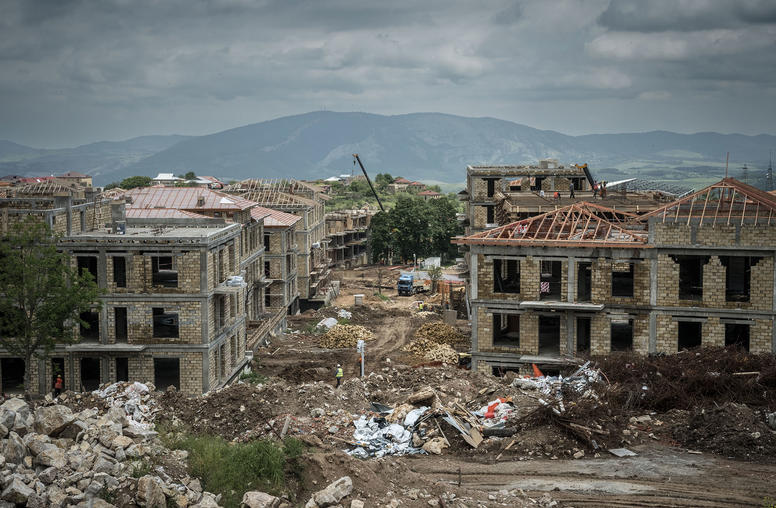 Fragility & Resilience
Fragility & Resilience
Wherever armed conflict erupts, its causes can almost always be traced back to weak or broken social contracts between government and its people. The U.S. Institute of Peace sees such “state fragility” as a complex issue that needs urgent attention. USIP strives to address the challenge of fragility through new approaches to conflict prevention and by strengthening resilience that promotes a sound social compact between the state and society. USIP has joined in convening the Fragility Study Group, a non-partisan initiative aimed at improving the U.S. government’s approach to reducing global fragility.
Featured Publications

Four Questions that Could Determine Haiti’s Future
Much has happened in Haiti over the past two weeks — none of it is reassuring. The Transitional Presidential Council (TPC) fired Prime Minister Garry Conille on November 10, after only six months in office. Moments before an interim prime minister was sworn in the next day, a U.S. commercial airliner was struck by gunfire, forcing a pause in flights to Haiti’s international airport. These developments underscore the reality facing Haiti's interim government and the immense challenges it faces in achieving a transition by February 2026, as outlined in an April 3, 2024 agreement. Given this dysfunction, Haitians and their international partners are rightly concerned that the country’s evolving political and security crisis will only further deepen.

Sahel Coup Regime’s Split from ECOWAS Risks Instability in Coastal West Africa
As policymakers monitor the spread of terrorist violence and warfare from the Sahel region, one broad threat to international and U.S. interests is West Africa’s 3.4 million people uprooted by the Sahel’s chaos. So far, over 110,000 have fled to four West African coastal states, a migration that signals new dangers to the region’s democracies, and to the Economic Community of West African States (ECOWAS), the multinational body that for decades has been central to promoting region-wide stability.

Quatre moyens par lesquels les États-Unis peuvent aider à faire progresser Haïti
Depuis que Haïti a conclu un accord politique début avril pour avancer vers une « transition ordonnée », de nombreux progrès ont été réalisés. Médié par la Communauté des Caraïbes (CARICOM), cet accord fixe à février 2026 l’échéance pour la mise en place d’un gouvernement et d’un parlement élus. Bien que politiquement et administrativement fragile, une structure de gouvernance transitoire est en place, dirigée par un Conseil présidentiel de transition (CPT) et le Premier ministre Garry Conille. Une mission multinationale de soutien à la sécurité (MSS), dirigée par le Kenya, est désormais active dans le pays et travaille à stabiliser la situation sécuritaire.
Current Projects

Senior Study Group on Counterterrorism in Afghanistan and Pakistan
In 2022, the U.S. Institute of Peace convened a senior study group to examine the evolving threat landscape and counterterrorism challenges in South Asia. The bipartisan study group brought together experts of counterterrorism strategy, diplomacy, intelligence and South Asia to assess terrorism risks from Afghanistan and Pakistan and put forth policy options for future counterterrorism efforts in the region.

Peacemaking in a Turbulent World: Lessons from Intrastate and Interstate Conflicts
Peacemaking in a Turbulent World answers the following central question: What lessons for effective management of intrastate conflicts emerged from the post-Cold War period that are relevant for managing contemporary conflicts which include intrastate, internationalized (featuring direct engagement by outside powers), and interstate conflicts?

Peace and Security Issues in Africa-China Economic Relations
Much of the research that has been conducted on the impact of China’s economic engagement with Africa has focused on their economic exchanges and security engagements in isolation of one another. But few have sought to understand the interconnections between these themes. These interconnections matter, as some Chinese firms are responsible for environmental degradation, population displacement, corruption and illegal extraction activities — all of which are factors that can drive conflict.